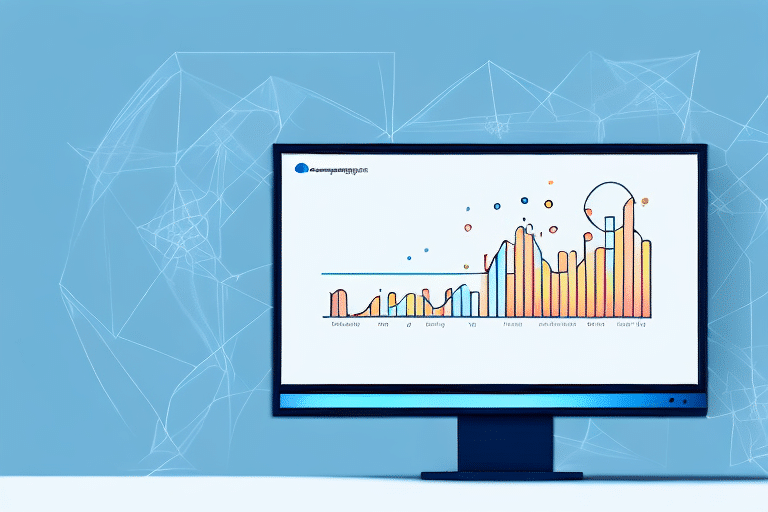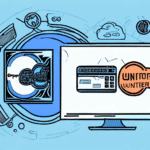Introduction to LSO and Wave Accounting
Running a small business involves juggling numerous tasks, with effective accounting being paramount for success. One tool that can significantly enhance your accounting system is the Local Storage Object (LSO) functionality in Wave Accounting. This guide explores the intricacies of LSO and how to connect, optimize, and manage it to streamline your accounting processes.
Understanding LSO and Its Importance for Small Businesses
What is LSO?
LSO, or Local Storage Object, is a web technology that allows data to be stored directly in a user's web browser. This local storage enables faster access to accounting data by reducing reliance on cloud-based servers.
Benefits of LSO
- Speed and Efficiency: By storing data locally, LSO minimizes delays associated with sending or retrieving information from the cloud.
- Enhanced Security: Local storage reduces the risk of data breaches that can occur during data transmission over the internet.
- Offline Access: LSO allows users to access and manage their accounting data even without an active internet connection.
According to a Forbes report, data security is a top priority for small businesses, making LSO a valuable tool for safeguarding sensitive financial information.
Understanding the Basics of Wave Accounting
Before delving into LSO integration, it's essential to grasp the fundamentals of Wave Accounting. Wave is a cloud-based accounting software designed specifically for small businesses, offering features such as income and expense tracking, invoicing, and financial reporting.
Key Features of Wave Accounting
- User-Friendly Interface: Wave's intuitive design makes it accessible even for those with minimal accounting experience.
- Cost-Effective: Wave offers a free version with essential features, making it an attractive option for startups and small businesses.
- Customizable Pricing Plans: As businesses grow, Wave provides scalable pricing options to meet evolving needs.
Connecting and Enabling LSO in Wave Accounting
How to Connect Your Account to LSO
Connecting your Wave account to LSO involves enabling local storage in your web browser. Follow these steps:
- Open your web browser and navigate to the settings menu.
- Select the “Privacy” or “Privacy & Security” tab.
- Find the option to enable local data storage, often labeled as “Allow local data to be set” or similar, and toggle it on.
- Restart your browser to apply the changes.
Once enabled, LSO will store your Wave Accounting data locally, enhancing the performance and responsiveness of the application.
Ensuring Browser Compatibility
Most modern browsers support LSO, but it's crucial to ensure that your browser is up-to-date to leverage the latest security features. Browsers like Google Chrome, Mozilla Firefox, and Microsoft Edge are recommended for optimal performance.
Optimizing LSO for Effective Accounting
Optimizing LSO involves configuring your Wave Accounting settings to maximize efficiency and accuracy. Here’s a step-by-step guide:
- Customize Your Dashboard: Tailor your dashboard to display essential financial metrics such as income, expenses, and cash flow for a quick overview.
- Set Up Automatic Invoicing: Automate your invoicing process to save time and ensure timely billing to clients.
- Integrate Payment Solutions: Connect your Wave account with payment gateways like PayPal or Stripe to streamline payment processing.
- Track Expenses Accurately: Utilize Wave’s expense tracking features to categorize and monitor your business expenditures effectively.
- Collaborate with Your Team: Invite team members to access your Wave account, facilitating collaborative accounting efforts.
Leveraging Wave’s Reporting Capabilities
Wave Accounting offers comprehensive financial reports that provide insights into your business’s financial health. Generate reports on:
- Income Statements
- Expense Reports
- Cash Flow Statements
- Balance Sheets
These reports can aid in making informed financial decisions and planning for future growth.
Benefits of Using LSO for Small Business Accounting
- Increased Speed and Efficiency: Faster data processing enhances overall accounting performance.
- Data Security: Local storage reduces vulnerability to online data breaches.
- Cost Savings: Eliminates the need for cloud storage subscriptions, reducing operational costs.
- Enhanced User Experience: Faster loading times improve usability and satisfaction.
- Customization: Enables tailored accounting solutions that fit specific business needs.
Additionally, according to the Small Business Administration, effective accounting practices can lead to better financial management and business sustainability.
Common Mistakes to Avoid When Managing LSO in Wave Accounting
While LSO offers numerous advantages, certain pitfalls can undermine its effectiveness. Common mistakes include:
- Neglecting Automatic Backups: Failing to set up regular data backups can lead to irreversible data loss.
- Inaccurate Data Verification: Not cross-checking stored data can result in financial discrepancies.
- Ignoring Data Privacy Regulations: Non-compliance with data protection laws can lead to legal repercussions.
- Overlooking Storage Limits: Ignoring LSO’s storage capacity can cause data storage issues.
- Lack of Employee Training: Without proper training, employees may misuse or mishandle LSO functionalities.
Additionally, not keeping your Wave Accounting software updated can expose your business to security vulnerabilities and software bugs.
Best Practices for Managing and Maintaining LSO in Wave Accounting
Adhering to best practices ensures that your LSO setup remains efficient and secure:
- Regular Data Backups: Schedule automatic backups to prevent data loss.
- Employee Training: Educate your team on the effective use of LSO and Wave Accounting features.
- Compliance with Privacy Laws: Stay informed about data privacy regulations and ensure your practices align with legal requirements.
- Clear LSO Cache Management: Periodically clear your LSO cache to maintain optimal storage capacity.
- Routine Data Audits: Regularly review your financial data to ensure accuracy and integrity.
Implementing these practices can enhance the reliability and performance of your accounting system.
Ensuring Data Privacy and Compliance with LSO
Data privacy is critical when managing financial information. To stay compliant with data privacy regulations:
- Minimize Data Collection: Only collect data essential for your accounting processes.
- Obtain Customer Consent: Ensure customers are aware and agree to how their data is collected and used.
- Secure Data Storage: Implement robust security measures to protect locally stored data.
- Provide Data Access Control: Allow customers to access or delete their data upon request.
- Regularly Update Privacy Policies: Keep your privacy policies up-to-date with the latest regulations.
Compliance with regulations such as the Federal Trade Commission Act ensures that your business avoids legal issues and maintains customer trust.
Integrating Other Software with Wave Accounting and LSO
Enhancing Wave Accounting with additional software can further streamline your accounting processes. Popular integrations include:
- Payroll Systems: Integrate with tools like Gusto to automate payroll management.
- Inventory Management: Connect with software like TradeGecko to manage inventory efficiently.
- Project Management: Use platforms such as Asana to coordinate accounting tasks within your team.
These integrations can lead to a more cohesive and efficient accounting ecosystem, reducing manual data entry and minimizing errors.
The Future of LSO in Small Business Accounting
The role of LSO in small business accounting is poised to grow as businesses increasingly adopt digital tools to optimize their operations. Future advancements may include:
- Enhanced Security Features: Improved encryption and authentication methods to further protect locally stored data.
- Greater Integration Capabilities: Seamless integration with a wider range of software applications.
- Advanced Analytics: Leveraging LSO data for more sophisticated financial analysis and forecasting.
As technology evolves, LSO will continue to be a critical component in creating efficient, secure, and scalable accounting systems for small businesses.
Frequently Asked Questions about Using LSO in Wave Accounting
Can I Use LSO with Other Accounting Software?
LSO functionality is primarily integrated with Wave Accounting. Other accounting software may offer similar local storage features, but LSO as described is specific to Wave.
What Happens If I Delete My LSO Data?
Deleting your LSO data will result in the loss of locally stored accounting information. It is crucial to regularly back up your data to prevent permanent loss.
Is LSO Safe to Use with Sensitive Data?
Yes, LSO is secure for storing sensitive data when proper security measures are in place. However, it is essential to adhere to data privacy regulations to ensure data protection.
How Can I Maximize My LSO Storage Capacity?
Regularly clearing your LSO cache and managing stored data efficiently can help maximize storage capacity.
How Often Should I Check My LSO Data?
Performing regular data audits, such as quarterly check-ups, can help identify discrepancies and maintain data accuracy.
In conclusion, leveraging LSO in Wave Accounting can be a game-changer for small businesses, offering enhanced speed, security, and efficiency. By connecting, optimizing, and effectively managing LSO, you can streamline your accounting processes, reduce costs, and ensure accurate financial management. Adhering to best practices and staying compliant with data privacy regulations will further bolster your accounting system, setting your business on a path to sustained success.






















